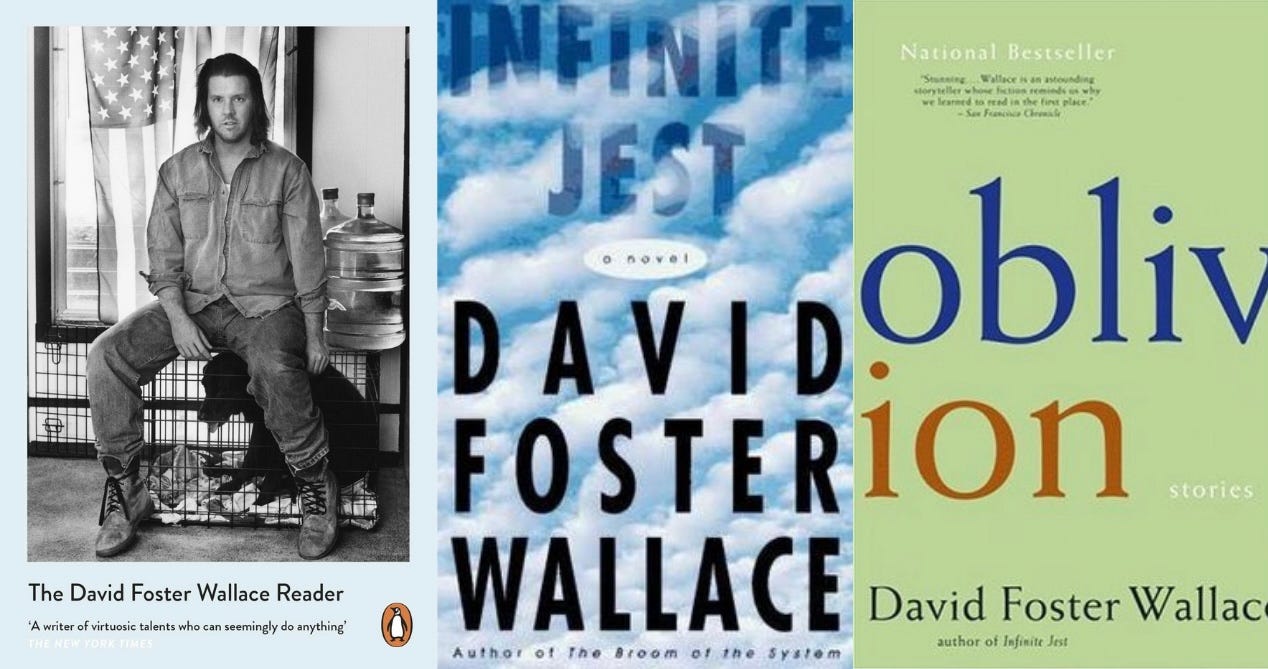I was at a literary gathering in Seattle when the news hit that David Foster Wallace had killed himself.
The sudden grief was palpable.
Two of my friends, epic fans of Wallace, wiped away tears. They were two men mourning the death of their favorite writer—another man in such emotional and mental distress that he’d felt his only option was to suicide.
I’d shared a stage with Wallace on a few occasions. He was an eccentric dude, obviously troubled, and seemed to wear his facial stubble and white bandana as a kind of armor—as a failed camouflage of his privileged economic class and educational attainment. But we all wear failed armor, don’t we? I liked him. He was polite offstage and somewhat condescending onstage. But I didn’t know him. I can’t tell you one thing about his private life—about his strengths and weaknesses as a person outside of his writing career. I doubt that he and I would’ve ever been friends. My writer friends tend to be the people who’ve spent significant time in blue-collar small towns.
In literary terms, I think Wallace was extraordinarily talented. But I like his essays more than his fiction. I love his use (and overuse) of footnotes.
As a person with mental illness—as a public figure with mental illness—I felt a chill of recognition when I heard of Wallace’s suicide. As a person with bipolar illness, I struggle with suicidal ideation. I don’t want to become the terrible news that rips into any public or private gathering.
I mourned for Wallace and his family and friends. I mourned for all of Wallace’s fans.
At that literary gathering, I comforted my two friends by asking them about their favorite Wallace-isms. They quoted and paraphrased various sentences, paragraphs, and pages. They spoke of the nights when they’d seen him speak. One of my friends spoke of the day when he spotted Wallace in an airport but was too shy to say hello. My friends’ fondness for Wallace’s books was equal to their grief.
I left that literary gathering early, even though I was one of the writers being celebrated. I’ve only been to two or three writer gatherings in Seattle. I’d rather be playing basketball with my friends who have zero to do with the book world.
I think that people assume that a famous writer like me spends most of his time among writers. Strangers—readers—often think they know me. And readers often think they knew David Foster Wallace. And I assume people think they know what kind of people grieved when Wallace died. Perhaps you, my readers, made assumptions about my two friends who wept on the night of Wallace’s suicide. And, when you saw the title of this essay, you might have also made assumptions about how I feel about Wallace and his ardent fans.
And, yes, because I’m an American who graduated high school in 1985, this essay has me thinking of the last scene of The Breakfast Club. I think of Brian reading his letter aloud: “Dear Mr. Vernon…you see us as you want to see us…in the simplest terms and the most convenient definitions…”
There are many “convenient” ways to see books, writers, and readers. In this literary era, as in every other literary era, we have turned racial, ethnic, geographic, theological, and economic simplification into a sacred ceremony.
But I’ll do my best to avoid participating in that ceremony.
In the wake of Wallace’s death, that literary gathering in Seattle was filled with warmth, fear, and empathy. But I’m sure that the clumsy and cruel categorization as practiced by cruel and clumsy people would turn that tender moment into two white book bros weeping over the ultimate white writer bro while an Indian writer bro served as witness.
It was more than that. Much more. It was about people mourning the death of a gifted writer. It was about the power of words. It was about the gorgeous and unabashed adoration of books.
Yes, it was a love story.
Note: This essay began as a comment on a Substack post by Freddie DeBoer, who wrote of the current culture war and “all of the bullshit ways we sort and rank each other…”














Share this post